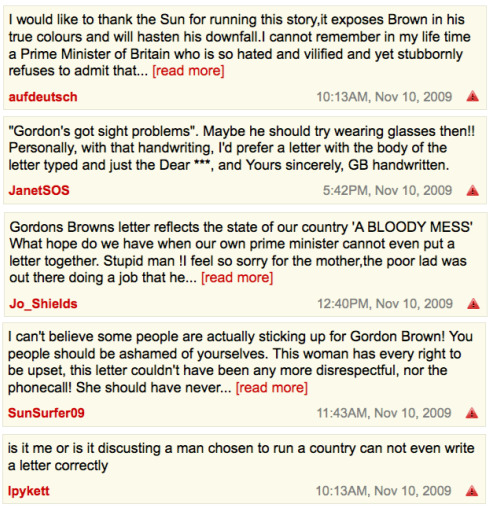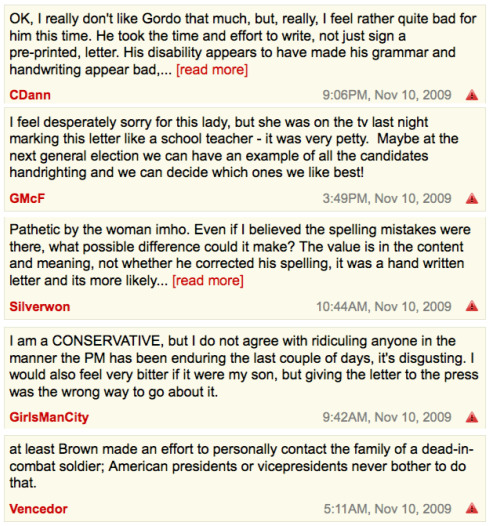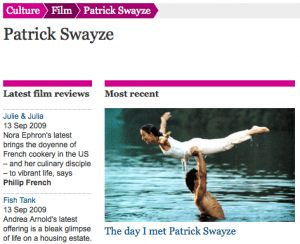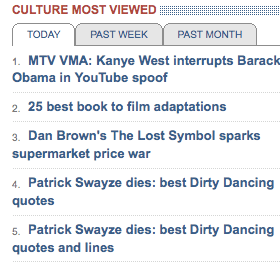The Sun is running a despicable campaign against Gordon Brown. But I’ve analysed the comments on its website – and readers disagree with its stance by a ratio of more than 3 to 2 (on top of which, there are now accusations that the Sun is censoring pro-Brown comments).
The paper has exploited the grief of Jacqui Janes over her son Jamie’s death in Afghanistan to attack the PM – because his handwritten letter of condolence was supposedly disrespectful due to sloppy writing and (disputed) spelling errors.
It’s loathsome journalism that ignores the effect of his disability (the PM is blind in one eye).
And it seems Sun readers are mostly on the Prime Minister’s side.
Of the 100+ comments on the story (don’t worry, I’ve nofollowed those links) when I checked, 111 expressed a view for or against Jacqui Janes or Gordon Brown (the rest commented on other issues or corrected people’s spelling errors). Of these:
- 42 were anti Gordon or pro the Sun’s stance.
- 69 were pro Gordon or anti the Sun’s stance.
So that’s more than 60% who don’t agree with the Sun, and less than 40% who do.
Sample comments from those who agree with the Sun’s stance
Some comments from those opposing it
Conclusion
The Sun is channeling this woman’s grief into a personal attack on the Prime Minister.
It’s refusing to make allowances for his disability (maybe we could next attack the war wounded for being workshy benefit scroungers?).
And it’s facilitating her breaking data protection laws by releasing a recording of a private phone call.
The whole thing is sickening – let’s hope that observing its readers’ reactions will lead to an end to this (not that this happened in the Jan Moir case) – and preferably prosecution of the Sun over the data protection offence. What’s more, Daily Mail readers are pro Brown, too. The Sun has got this badly wrong.


